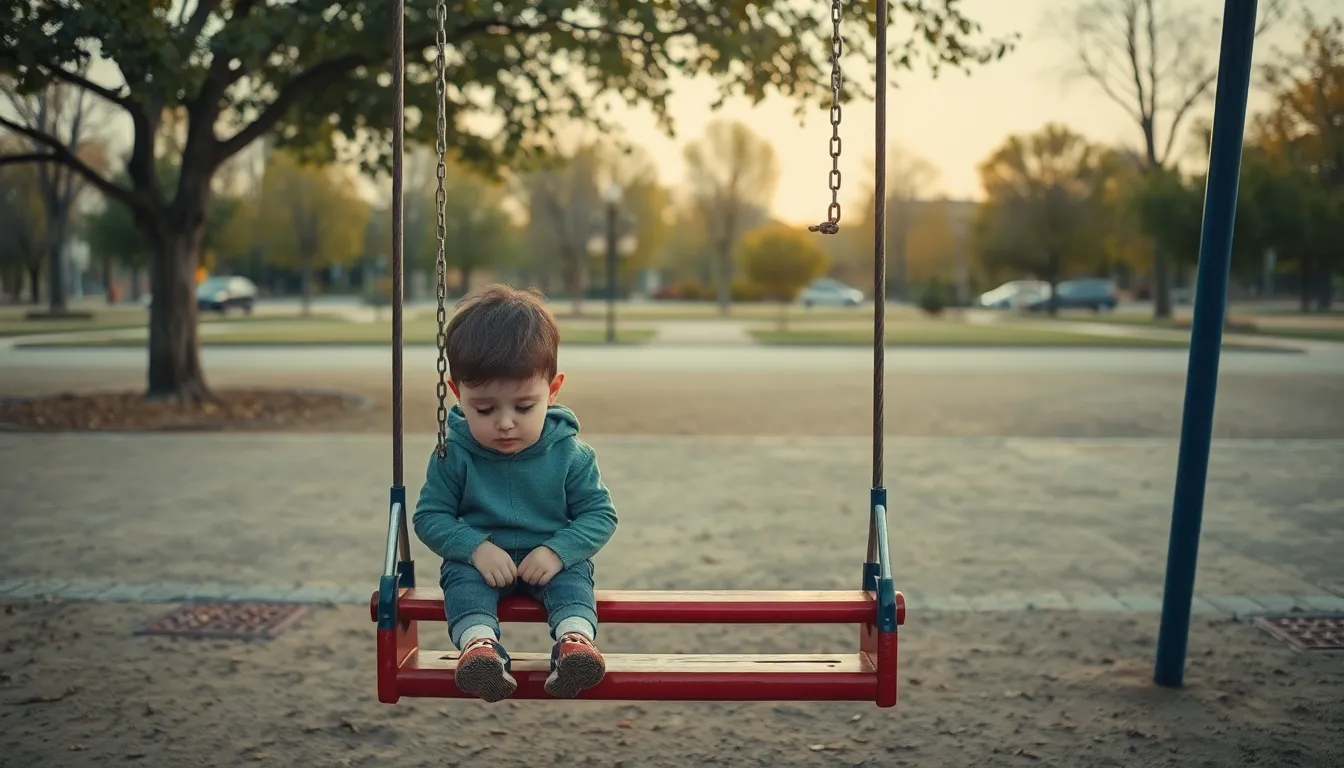Table of Contents
ToggleIn a world where parenting styles can spark heated debates, uninvolved parenting often takes the backseat—much like a forgotten snack in a minivan. It’s a style that’s as elusive as a sock in a dryer, yet its impact on kids is anything but trivial. Picture parents who are more like distant spectators at a game than active players; they’re around, but not really engaged.
Understanding Uninvolved Parenting Styles
Uninvolved parenting significantly impacts a child’s development and overall well-being. This style reflects a lack of responsiveness and engagement in a child’s life.
Definition of Uninvolved Parenting
Uninvolved parenting refers to a commitment to minimal interaction between parents and children. Often characterized by neglect, this style involves limited emotional support or guidance. According to developmental psychologists, uninvolved parents usually prioritize their own needs over their child’s. They may neglect educational involvement, supervision or even basic daily necessities.
Characteristics of Uninvolved Parents
Uninvolved parents exhibit several notable characteristics. They tend to demonstrate a lack of communication with their children. Emotional support typically remains absent, leading to feelings of isolation in the child. Rules and discipline often shift to non-existent, allowing children to make decisions without guidance. Relationships often lack depth, resulting in minimal connection with their child. Studies show that these parents may also struggle with their own personal issues, creating barriers to deeper engagement.
Effects on Child Development

Uninvolved parenting significantly affects children’s emotional and social development. These effects often manifest in various ways, creating lasting challenges.
Emotional Impacts
Children raised by uninvolved parents typically experience feelings of insecurity. Lack of emotional support can lead to low self-esteem and difficulties in forming healthy relationships. They may also struggle with anxiety, as consistent validation is absent. Behavioral issues commonly arise, impacting their ability to cope with stress. Research indicates that these children exhibit higher rates of depression compared to those with more engaged parents. Emotional neglect creates a gap in understanding and processing emotions, leaving children ill-equipped for relational situations later in life.
Social Development Issues
Social skills often lag behind in children with uninvolved parents. Limited interaction with caregivers results in a lack of guidance in developing interpersonal skills. Peer relationships may suffer due to difficulties in establishing trust and empathy. Children may withdraw from social settings, leading to isolation. Studies show these children often have trouble forming friendships, which can cause feelings of loneliness. In academic settings, collaborative learning is challenging for them, as they tend to avoid teamwork. Social competence remains underdeveloped, influencing their ability to connect with others throughout adulthood.
Comparison with Other Parenting Styles
Uninvolved parenting differs markedly from other parenting styles in terms of engagement and support.
Authoritative Parenting
Authoritative parenting involves high levels of responsiveness and demands. Parents actively engage with their children, setting clear expectations and providing emotional support. Research indicates that children raised in authoritative environments often exhibit better emotional regulation, decision-making skills, and overall resilience. The mutual respect and open communication characteristic of this style foster healthy relationships, contrasting sharply with the detachment seen in uninvolved parenting. Authoritative parents provide guidance and structure, leading to well-rounded development as their children feel valued and understood.
Permissive Parenting
Permissive parenting emphasizes freedom with minimal boundaries. Parents adopt a friendly approach, often prioritizing their child’s desires over rules. While this fosters creativity and self-expression, it can lead to difficulties with authority and self-discipline. Children in permissive households enjoy less structure compared to those in authoritative settings but still receive more interaction than those with uninvolved parents. As a result, they may struggle with self-regulation, finding it challenging to cope with limits in environments outside the home. The lack of boundaries often contrasts with the emotional neglect present in uninvolved parenting.
Strategies for Improvement
Improving uninvolved parenting requires active engagement and support for children’s emotional needs. Implementing effective strategies can create healthier family dynamics and foster emotional well-being.
Engaging with Your Child
Establishing regular communication strengthens the bond between parent and child. Taking time for daily conversations encourages children to share their thoughts and feelings. Participating in activities together enhances connections, creating shared experiences that build trust. Setting aside distractions during family time fosters attentive listening, showing children they are valued. Addressing their interests and hobbies can spark meaningful interactions and help parents better understand their children’s needs. Each engagement, no matter how small, contributes to their sense of security and supports social development.
Seeking Professional Help
Consulting a family therapist can offer guidance to improve parenting skills. Professional support provides tools for effective communication and emotional connection. Understanding underlying issues with a counselor’s help assists parents in recognizing personal barriers that affect parenting. Workshops and support groups create opportunities for sharing experiences with others facing similar challenges. These resources help develop strategies tailored to individual family dynamics. Engaging with professionals aids in creating a more supportive environment for children, addressing their emotional and social needs.
Uninvolved parenting can have profound and lasting effects on children’s emotional and social development. The lack of engagement and support leaves children vulnerable to feelings of insecurity and difficulties in forming healthy relationships. As parents recognize the importance of their role, they can take steps to improve their interactions and foster a nurturing environment. By prioritizing communication and emotional connection, parents can help their children thrive. Investing time in understanding and addressing personal challenges can further enhance their ability to be present and supportive. Ultimately, creating a more engaged parenting approach contributes to healthier family dynamics and better outcomes for children.







